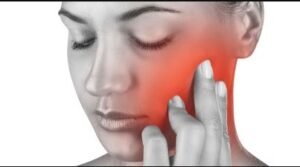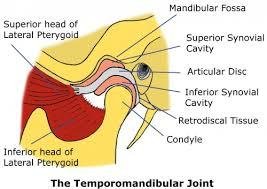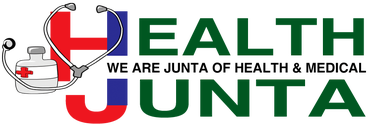What is Jaw Pain?
Having jaw pain can create a lot of discomfort and affect your ability to speak and eat. Many things may cause jaw pain raging from the jaw itself to teeth, ears, and sinuses. It may be difficult to tell exactly what’s causing the pain and therefore you need to seek help of a dental specialist.


Structures of Jaw
Jaw pain can happen abruptly or it could begin with a mild feeling of pain and advances progressively to become intense over time. The symptoms of jaw pain tend to vary depending on what might be causing it. To treat the pain, it is important to identify the underlying issues. 1,2,3,4,5
Causes of Jaw Pain
Teeth Grinding
If you grind teeth often, it may cause damage to the teeth resulting in pain in the jaw and surrounding tissues. This is believed to be the commonest cause for painful jaw. Teeth grinding is the process in which you clench the teeth and it may not be linked to chewing. You may find that if you are stressed, you grind your teeth, but this does not occur to every individual- only some people. Other people grind teeth while they are asleep and may not know they do it. When teeth grinding is not checked, it may cause other dental problems.1,2,4,5
Osteomyelitis
This is an infection of the body that can travel through your bloodstream to affect bones and tissues. An individual with jaw osteomyelitis may have problems with the temporomandibular joint, something that results in painful jaw as well as swelling of the face. The good thing is that it is a treatable condition.
Dental conditions
You may experience pain in your jaw if you have dental problems like abscess, cavities, and gum disease. One thing you should know is that while these dental issues may not directly affect your jaw, there can be pain radiating into the jaw part. People with gaps occurring in between the teeth or those who have severely damaged teeth can have jaw pain, especially if there is pressure put on the jaw, for example, when you chew or bite something.
Abscessed tooth
This could be caused by something like a nerve or dental pulp that is infected. You may suffer from abscessed tooth if you have a dental cavity that remains untreated for a long time. Bacteria arising from an infection could spread from the root of a tooth thus affecting the surrounding bone tissue. This, in turn, may cause jaw pain.
Temporomandibular disorder
This is also known as TMS and it is associated with the temperomandibular joint found in your jaw. TMD can also bring about your jaw making a clicking sound, especially when you chew something or when you open your mouth. In severe cases, TMD could make your jaw to get stuck in a closed or open position permanently.
There are other less common causes of painful jaw and they include:
Cluster headaches
If you experience cluster headaches, it could cause pain around or behind the eye, and that pain can radiate to reach the jaw part. Cluster headaches are known to be some of the most painful types of headaches.
Sinus problems
Sinuses are found near the jaw joint and they are air-filled cavities. When these sinus are infected by a bacterium or virus, they may cause excess mucus, which tends to put pressure on your jaw joint resulting in pain.
Trigeminal neuralgia
This condition is mainly caused by compression of nerve, particularly the trigeminal nerve, which is responsible in providing sensation to most parts of the face including the lower and upper jaws.
Heart attack
When you have a heart attack, it may cause pain to radiate to other parts of body like the back, arms, chest, neck, and jaw area. Women tend to have jaw pain occurring on the left facial side, if they have a heart attack.
Symptoms Associated with Jaw Pain
If you have a painful jaw, you may find that you may experience other symptoms, which include: 3,4
- Facial pain
- Popping or clicking when you try to move your jaw
- Frequent headaches
- Tension in your jaw
- Tenderness occurring in the jaw joint
- Shooting or sharp pain when you bite or chew something
- Pain radiating around and in your ear
- Stiffness of your jaw, which causes problems in opening the mouth
- Facial swelling
- Fever
- Nerve-type pain, for example burning
- Toothache
- Vertigo
- You can become overly sensitive to pain
- Dizziness
- Ringing ears
- Jaw alignment issues
- Limited range of motion of the jaw
- Earaches
Diagnosis of Jaw Pain
A doctor will perform tests to help diagnose and treat jaw pain. Some of the tests include: 4
- Physical exam: A doctor will do a physical exam to assess the neck bones, nerves, jaw, muscles, and the mouth to see if there may be problems that are causing the pain in your jaw.
- Pain history: A complete medical as well as history of having pain may be analyzed by the doctor.
- Blood test: A doctor will order blood tests, which include erythrocyte sedimentation rate, a type of blood tests used in diagnosing conditions that involve pain
- Imaging tests: The doctor may order for radiology imaging tests such as MRI and X-ray to help determinate if there may be damages on the jaw joint and the surrounding tissue.
- Psychiatric and psychological screening: This may help find out if you could have stress, which may be causing you to grind your teeth, something likely to damage the teeth thus resulting in pain.
There may be other tests a doctor may order if it is suspected that there is a disease or health condition causing the pain.
Treatment of Jaw Pain
For immediate relief, you may want to do the following: 2,4,5
Apply ice packs or moist heat
You can place ice inside a plastic bag then using a thin cloth, you wrap it in there then apply to the facial area for around 10 minutes. You want to avoid placing ice packs directly onto your skin to avoid ice burns. Take the ice packs off for another 10 minutes and apply again. You may also use a washcloth and run some warm water over it and apply to the jaw area. Moist heat helps in relaxing overactive jaw muscles thus relieving pain. There are ice packs and heat packs you can purchase at a pharmacy, but they also need to be wrapped in a cloth.
Massaging the affected jaw joint
You can use the middle or index finger to massage the jaw joint. Press the sore area, rub the area using a circular motion. Make about 5 to 10 rotations of the circular motion, then open the mouth and repeat the process. You can relieve tension of muscles found on the side of the neck using massage.
Reduce stress
You can take stress-relieving exercises to help lower jaw clenching and these exercises include journaling, meditation, and yoga. Such exercises are helpful if your jaw pain is being caused by stress.
Stop having chewy foods
If you take tough, chewy, or crunchy foods, they could cause a lot of strain on the jaw joint. You can avoid these foods so that you ease the discomfort and pain. Chewy items may include beef jerky, apples, ice, or chewing gum.
Stop taking caffeine
Having caffeine may lead to muscle tension, which causes painful jaw.
Doctor will advise that you use non-invasive jaw pain treatment methods, however, if these methods are not helping to stop the pain, then further interventions may be called for including medical treatment. Medical treatment of jaw pain may involve:
OTC pain relievers
You can take medications such as ibuprofen and acetaminophen to help in reducing discomfort.
Mouthguard
This is a dental protector made of plastic material and it can be worn on the lower or upper teeth to prevent teeth grinding, especially if you grind teeth when asleep. You can wear mouthguard when going to bed.
Muscle relaxers
A dentist may prescribe you some pain relaxers to help in easing jaw tension, but muscles relaxers may not help in people who have TMD.
Antibiotics
A doctor may prescribe antibiotics if an infection is causing jaw pain.
Antiviral therapy
If the pain is being caused by a virus, then a patient may be administered antiviral drugs to help treat the infection. For example, if herpes zoster is causing pain, an antivirus may be administered.
Oxygen therapy
This helps treat cluster headaches alongside use of some prescription medications.
Dental treatment
A dentist may use dental treatment procedures such as root canal treatment and tooth extraction if the jaw pain is being caused by infections of the teeth or abnormal alignment of teeth.
Having Boxot injections
Having these injections helps to prevent jaw muscle clenching. The botulinum toxin contained in Botox can help a lot in stopping clenching of the jaw muscles. This, in turn, helps reduce pain occurring dues to TMD.
Jaw surgery
Though rarely, a doctor may consider jaw surgery as an option to help address your jaw pain. The surgery is done to correct problems related to TMD. Surgery is only done in people who have severe cases of jaw pain and the pain comes about as a result of structural problems with the jaw joint.
Reference List
- Jaw Pain Causes: Why You Might Be Feeling Pain. http://www.colgate.com/en/us/oc/oral-health/conditions/temporomandibular-disorder/article/jaw-pain-causes-why-you-might-be-feeling-pain-0613
- Jaw Pain. https://www.gotoapro.org/jaw-pain/
- Understanding Jaw Pain: How to Find Relief. http://www.healthline.com/health/jaw-pain
- Jaw pain: Causes, symptoms, and treatment. http://www.medicalnewstoday.com/articles/317184.php
- Jaw Pain. http://www.mouthhealthy.org/en/az-topics/j/jaw-pain
